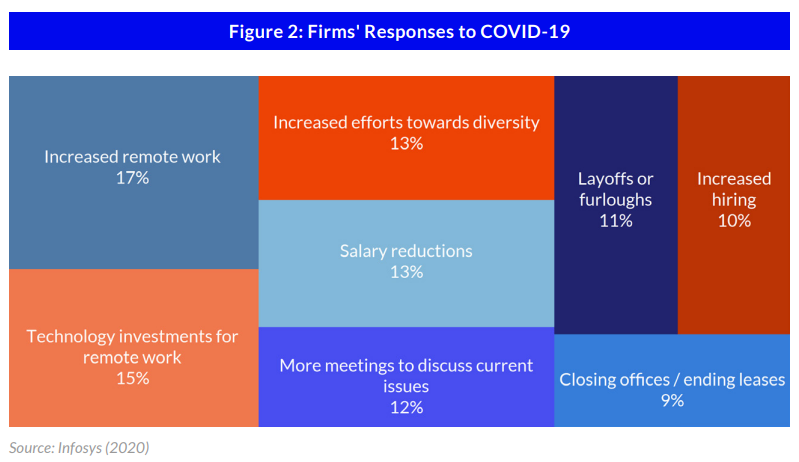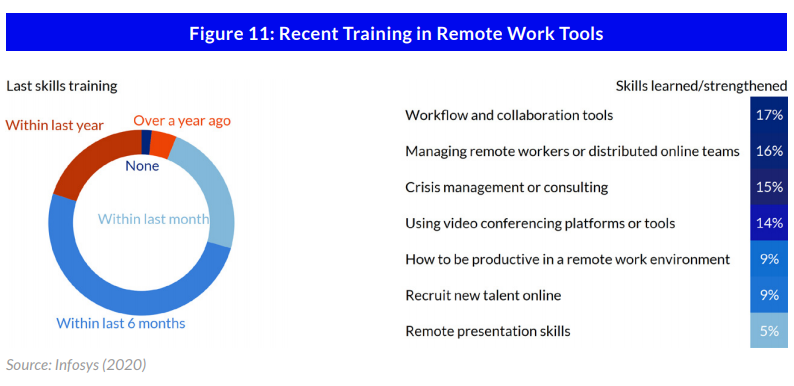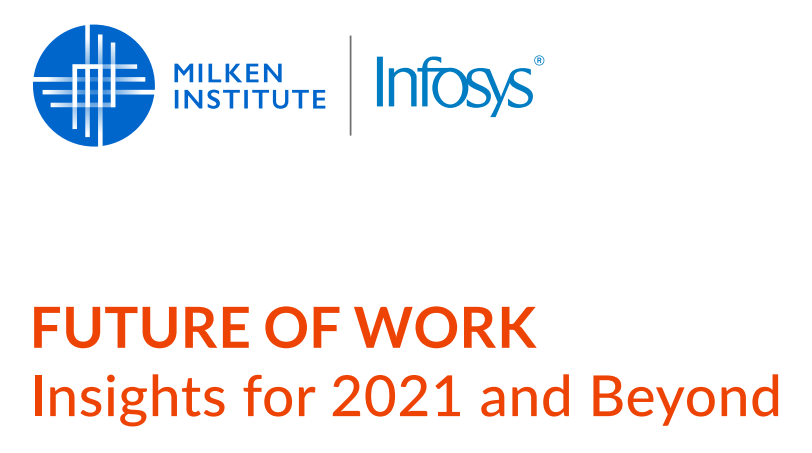Amritsar, NFA Post: Covid-19 pandemic has accelerated job displacement and unemployment trends initiated by advances in technology and automation, a survey conducted by California-based economic think tank, The Milken Institute, and Infosys Ltd showed.
The Milken Institute partnered with Infosys to conduct a survey on attitudes and preparedness towards the future of work. The report titled “FUTURE OF WORK Insights for 2021 and Beyond” was based on Infosys’ survey of 608 managers and 401 employees —all US-based— from companies with at least $1
billion in revenue from Oct-Nov 2020.
The surveyed companies’ responses to Covid-19 were varied and evenly distributed. Unsurprisingly, many switched to remote work and adopted the technologies to do so, with computer programmers leading this trend.
Larger companies, as well as the entertainment and education industries, turned more towards wage cuts and layoffs, while arts and design saw a larger share of respondents closing offices, the survey report showed.
Meanwhile, the health-care industry responded to Covid-19 by increasing efforts toward diversity, it said.

The report highlighted that most employees saw increased job opportunities from other geographies, and employers were more willing to hire workers from elsewhere, especially smaller
firms.
Relatedly, 13% of respondents reported a greater emphasis on diversity at their workplace. This could bode well for workers with
different backgrounds who are traditionally constrained by geography, the report said.
Key Findings
- A broad shift toward remote working and hiring, with a greater focus on inclusion and diversity;
- Net satisfaction with remote work and productivity, notwithstanding higher workloads and the loss of social interactions with colleagues;
- High trust in employees during remote work, though with increased surveillance; and
- A rise in employee skills training focused on working remotely, which most employees found useful.
The survey report noted that amid the short-term trend towards remote work, jobs themselves will change, requiring new skills and methods of attaining them.
When thinking about growth prospects, a third of CEOs were extremely concerned about the availability of key skills, the report said.
It added that hence it was important to dissect respondents’ attitudes towards skills training for the future.
“The biggest collateral damage [of Covid-19] would be if we sleep through a huge opportunity to shift gear in our economies and our societies for the better… Is [the digital economy] going to be a winner for few but not for everybody?” said International Monetary Fund Managing Director Kristalina Georgieva in an interaction with The Milken Institute.
The survey highlighted that there was a spike in work-related skills training when stay-at-home orders started in March 2020.
About 99% of respondents said their firm offers skills training opportunities, and 95% of respondents said it was beneficial to their jobs.
“This speaks to the receptivity toward just-in-time learning. Indeed, many respondents participated in training to stay current in their work,” the report said.

Recommendations
Building on the findings of the survey, the report has made several recommendations to address rising inequality and disruption, supplemented with insights generated from numerous public events the Milken Institute has convened. These recommendations include:
- Accelerating regional growth through public investments that broaden access to local sectors with high potential;
- Financing access to education and skills training, including for underprivileged populations;
- Strengthening business-education partnerships, including just-in-time learning, agile curricula, and flexible time commitment; and
- Regular and outcomes-based evaluation of initiatives, to continually identify areas for improvement.





